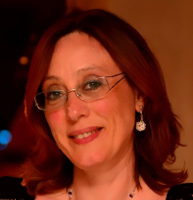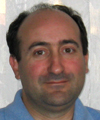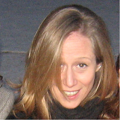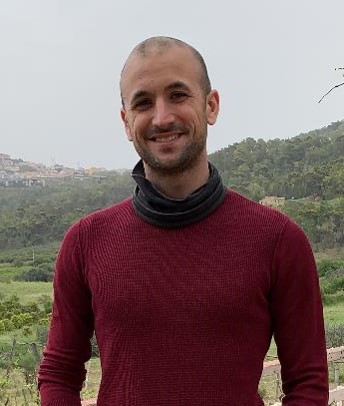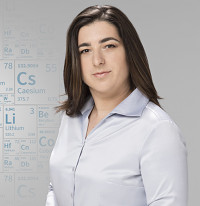Studying at the University of Verona
Here you can find information on the organisational aspects of the Programme, lecture timetables, learning activities and useful contact details for your time at the University, from enrolment to graduation.
Academic calendar
The academic calendar shows the deadlines and scheduled events that are relevant to students, teaching and technical-administrative staff of the University. Public holidays and University closures are also indicated. The academic year normally begins on 1 October each year and ends on 30 September of the following year.
Course calendar
The Academic Calendar sets out the degree programme lecture and exam timetables, as well as the relevant university closure dates..
| Period | From | To |
|---|---|---|
| 1° Semestre | Oct 1, 2023 | Jan 31, 2024 |
| 2° Semestre | Mar 1, 2024 | Jun 30, 2024 |
Exam calendar
To view all the exam sessions available, please use the Exam dashboard on ESSE3. If you forgot your login details or have problems logging in, please contact the relevant IT HelpDesk, or check the login details recovery web page.
Should you have any doubts or questions, please check the Enrollment FAQs
Academic staff
 chiara.nardon@univr.it
chiara.nardon@univr.it
Study Plan
The Study Plan includes all modules, teaching and learning activities that each student will need to undertake during their time at the University.
Please select your Study Plan based on your enrollment year.
1° Year
| Modules | Credits | TAF | SSD |
|---|
2° Year It will be activated in the A.Y. 2024/2025
| Modules | Credits | TAF | SSD |
|---|
3° Year It will be activated in the A.Y. 2025/2026
| Modules | Credits | TAF | SSD |
|---|
4° Year It will be activated in the A.Y. 2026/2027
| Modules | Credits | TAF | SSD |
|---|
5° Year It will be activated in the A.Y. 2027/2028
| Modules | Credits | TAF | SSD |
|---|
| Modules | Credits | TAF | SSD |
|---|
| Modules | Credits | TAF | SSD |
|---|
| Modules | Credits | TAF | SSD |
|---|
| Modules | Credits | TAF | SSD |
|---|
| Modules | Credits | TAF | SSD |
|---|
| Modules | Credits | TAF | SSD |
|---|
Legend | Type of training activity (TTA)
TAF (Type of Educational Activity) All courses and activities are classified into different types of educational activities, indicated by a letter.
General pathology (2024/2025)
Teaching code
4S01165
Teacher
Coordinator
Credits
6
Language
Italian
Scientific Disciplinary Sector (SSD)
MED/04 - EXPERIMENTAL MEDICINE AND PATHOPHYSIOLOGY
Period
FARMACIA 2° semestre dal Jan 2, 2025 al May 30, 2025.
Courses Single
Authorized
Learning objectives
This course has the aim to describe molecular mechanisms underlying pathological processes concerning essential cell and tissue functions and the consequent injury-induced tissue repair. The course addresses classical examples of molecular alterations affecting subcellular organelles and tissue interstitium. Additionally, complex alterations occurring at the organism level (aging, diabetes, steatosis) are described. In the context of cell damage, particular attention is given to alterations of signal transduction and cell transformation. This last pathology is addressed in the more general context of causes of tumor transformation, cancer cell biology and consequences of tumor growth at the organism level. Mechanisms of host defenses against pathogens and reaction to tissue injury are described in great details both in terms of cell involved and molecular mechanisms. Acute and chronic inflammation are addressed in the context of their causes, their cellular and molecular mechanisms and their interaction with the immune response.
Learning assessment procedures
Learning test contents : the test covers all the topics of the program
Methods of assessment : oral examination
Evaluation criteria
Evaluation methods
The ability of critical reasoning and exposition of the topics studied is evaluated
The objectives of the test have the aim to evaluate the knowledge of the molecular mechanisms underlying the pathological processes.
Votes expressed out of thirty
Type D and Type F activities
Modules not yet included
Career prospects
Module/Programme news
News for students
There you will find information, resources and services useful during your time at the University (Student’s exam record, your study plan on ESSE3, Distance Learning courses, university email account, office forms, administrative procedures, etc.). You can log into MyUnivr with your GIA login details: only in this way will you be able to receive notification of all the notices from your teachers and your secretariat via email and soon also via the Univr app.
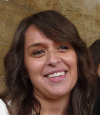
 045802 7955
045802 7955
